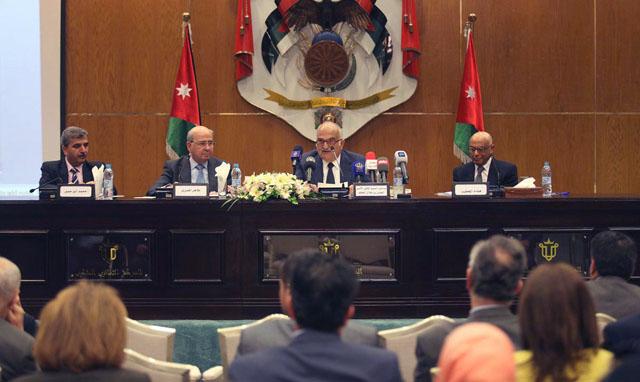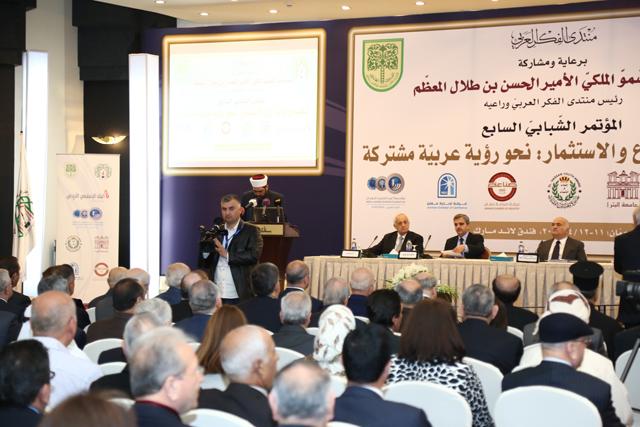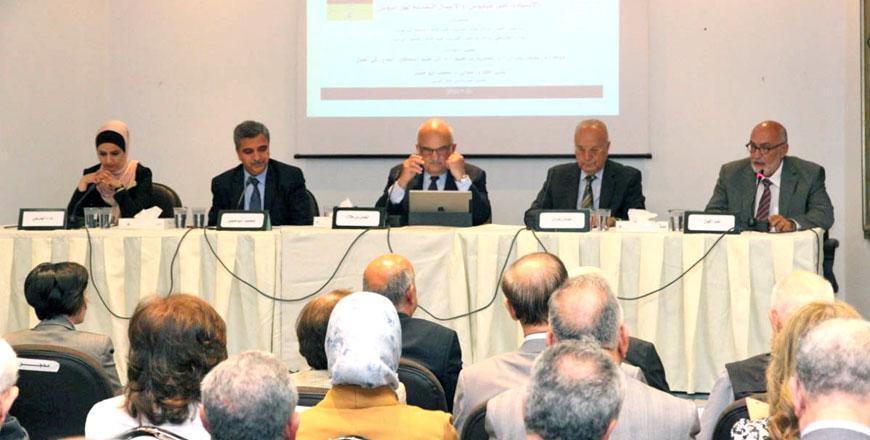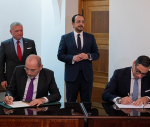You are here
Cultural charter to foster regional cooperation
By Dana Al Emam - Mar 12,2017 - Last updated at Mar 12,2017
AMMAN — Jordanian and Arab scholars on Sunday highlighted the role of the Arab Cultural Charter, still under preparation, in magnifying regional cooperation and establishing an “intellectual renaissance” project.
Members of the Arab Thought Forum (ATF) discussed the charter’s draft during a meeting where they agreed on the need for a regional framework that would preserve cultural constants and enhance them in the light of the current geopolitical situation.
HRH Prince Hassan, president of the ATF, said culture is “at the heart of modern discussions on identity, social cohesion and economic development”, adding that they are all based on the humanisation of knowledge.
He noted the importance of respecting cultural differences, tolerance, dialogue and cooperation as the means to achieve psychological, societal and cultural peace.
“We look forward to enhancing a solidarity that is based on acknowledging cultural diversity and the unity of the human race, as well as developing exchanges between cultures, starting with the Arab culture,” he said at the event.
The Prince noted that the forum works in cooperation with several international initiatives, including the Islamic Educational, Scientific and Cultural Organisation and the Arab League Educational, Cultural and Scientific Organisation.
These organisations all recommended the establishment of international agreements to facilitate the free exchange of ideas, he added.
In 2012, the ATF published the Arab Social Charter, later followed by the Arab Economic Charter in 2015, said ATF Secretary General Mohammad Abu Hammour, who added that the forum will prepare a political charter once the cultural charter is issued.
Drafted by Salah Jarrar, former culture minister and former president of the University of Jordan, the present charter discusses the questions of Arab unity, comprehensive development in the region, intra-Arab cooperation and the national and humanitarian security, Abu Hammour added.
After deliberations by the experts, the ATF will officially launch the Arab Cultural Charter, he noted, without specifying a date.
During his presentation of the draft document, Jarrar said the regression of the place for culture in society and itsinstitutions was a sign of weakness and of an inability to grow.
While cultural advancements are essential to face current regional challenges, achieving these advancements means people will need to learn from the past and to use the present in order to build the future, he explained.
He cited production and innovation as essential elements to face current and future challenges.
The meeting also focused on preparations for the Arab Thought Renaissance project.
Monther Haddadin, an academic and former minister, said Arab nations need a revolutionary movement nowadays more than they did 100 years ago during the Great Arab Revolt.
He added that the Arab world’s demographic diversity was a strength to be used for the bigger interest, regardless of religious or ethnic sub-belongings.
Haddadin underlined the need to combat the spread of extremist groups that “hijack the name of Islam to commit crimes” through the implementation of a clear renaissance project.
He said the project would help defend Islam by clarifying the vagueness that emerged in Western media outlets, especially by highlighting the difference between the reality of Islam and the doings of terrorists.
He noted that the renaissance had to be comprehensive and suitable for the civil state.
Related Articles
Jerusalem’s heritage is not only an Arab Islamic and Christian responsibility, but an international concern that all humanity should preserve, according to HRH Prince Hassan.
AMMAN — Enhancing the efficiency of educational systems in Arab countries and creating a better synergy between educational outcomes and lab
AMMAN — HRH Prince Hassan on Tuesday said that communication between cultures is vital for creativity to flourish, the Jordan News Agency, P


















